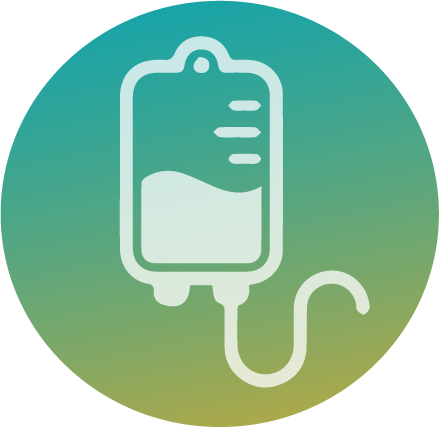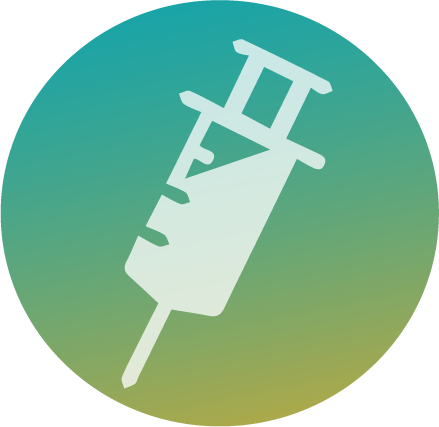Treatment of MS
Although Multiple Sclerosis cannot be cured, there are medications that can manage and put it under control. When you are first diagnosed with MS and suffer from an acute attack (or when you have relapses), your doctor may put you on immunoglobulins, steroids, or even arrange plasma exchange depending on your disease severity. However, the more important treatment is disease modifying therapies (DMTs), which modulate the immune system via different mechanisms, and aim to prevent future relapses.
As of 2023, the following are the approved MS DMTs registered in Hong Kong. While the majority targets patients with relapsing-remitting MS (RRMS), some are also approved for progressive MS. Their availability depends on the centre you receive your MS care from.
They are listed out in alphabetical order.

Alemtuzumab
Alemtuzumab is an immune reconstitution therapy for RRMS which is in intravenous form. It is usually reserved for more aggressive cases of MS. The first course is given over 5 consecutive days, and the second course is given one year later over 3 consecutive days. Some patients may require a third or fourth course. Frequent blood tests and monitoring are required during treatment due to potential side effects affecting platelet counts or the thyroid gland.

Cladribine
Cladribine is an oral-form immune reconstitution therapy for RRMS which is given over 2 years. In the first year, the drug is taken once per day for 5 consecutive days. One month later, the drug is again taken once per day for 5 consecutive days. This treatment algorithm is repeated for the second year.

Interferons
Interferons (IFN) are injectables and one of the oldest drugs for RRMS. In Hong Kong, three brands are available: an intramuscular IFN injected at once per week; a subcutaneous IFN injected at 3 times per week; and another subcutaneous IFN injected every other day. The three brands of interferon now deploy smart-injection devices to facilitate use. Common side effects of interferon include fever, headache, flu-like illness and injection site reactions.

Dimethyl Fumarate
Dimethyl Fumarate is an oral medication approved for RRMS which is taken twice per day. Its side effects include flushing and stomach-upset. There have been reported cases of Progressive Multifocal Leukoencephalopathy (PML) which is a severe adverse reaction. Dimethyl Fumarate is also used in treating psoriasis.

Fingolimod
Fingolimod is a once-per-day oral medication for RRMS, usually used if patients fail to respond to first-line treatments such as interferons. Patients on Fingolimod need to have their heart rate and vision monitored regularly. Common side effects include headache, flu-like illness and stomach-upset. It is particularly important to ensure good compliance to Fingolimod due to reported cases of severe disease rebound if the drug is stopped. You should also consult your doctor if you have forgotten to take your Fingolimod for more than 5 days.

Mitoxantrone
Mitoxantrone is uncommonly used nowadays but has a licensed indication for SPMS. It is mainly reserved for patients who have rapidly advancing diseases and failed other forms of therapy. It is sometimes given as an induction therapy to put MS activity under control before switching to other forms of maintenance therapy.

Natalizumab
Natalizumab is an intravenous drug approved for RRMS which is infused every one month. Patients must have their blood checked for the JC-virus status before commencing treatment due to the associated risk of Progressive Multifocal Leukoencephalopathy (PML). It may be necessary to switch to another form of treatment or extended interval dosing after 2 years depending on your PML risk profile.

Ocrelizumab
Ocrelizumab is an anti-CD20 B-cell therapy approved for RRMS, active forms of SPMS and PPMS. It is given as an infusion drug. After an initial dose which was split in 2 infusions and given 2 weeks apart, Ocrelizumab is received every 6 months as maintenance therapy.

Ofatumumab
Ofatumumab is an anti-CD20 B-cell therapy approved for RRMS and active form of SPMS. It is given in subcutaneous form. During treatment commencement, Ofatumumab is given 1 dose per week for 3 consecutive weeks. Then, after skipping one week, you will start a 1 dose per month maintenance regimen.

Ozanimod
Ozanimod is a once-daily oral medication approved for RRMS as well as active form of SPMS. It shares a similar side effect profile with other S1P receptor modulators such as Fingolimod and Siponimod.

Siponimod
Siponimod is a once-daily oral medication approved for RRMS as well as active form of SPMS. It is in the same class as Fingolimod, and thus shares a similar side effect profile. However, a blood test for genotyping must be done first to determine your fitness to use the drug and its recommended dosing.

Teriflunomide
Teriflunomide is a once-per-day oral medication approved for RRMS. Its side effects include headache, stomach-upset and hair thinning. Contraception is necessary if you are on Teriflunomide (both male and female patients) as it is not recommended for use in pregnancy.
Regardless of the type of treatment you are on, compliance is of utmost importance. You should report to your doctor if you have any side effects from the medication. Your doctor will also arrange regular blood tests or other forms of investigation for you depending on the type of disease-modifying-agent you are on.
